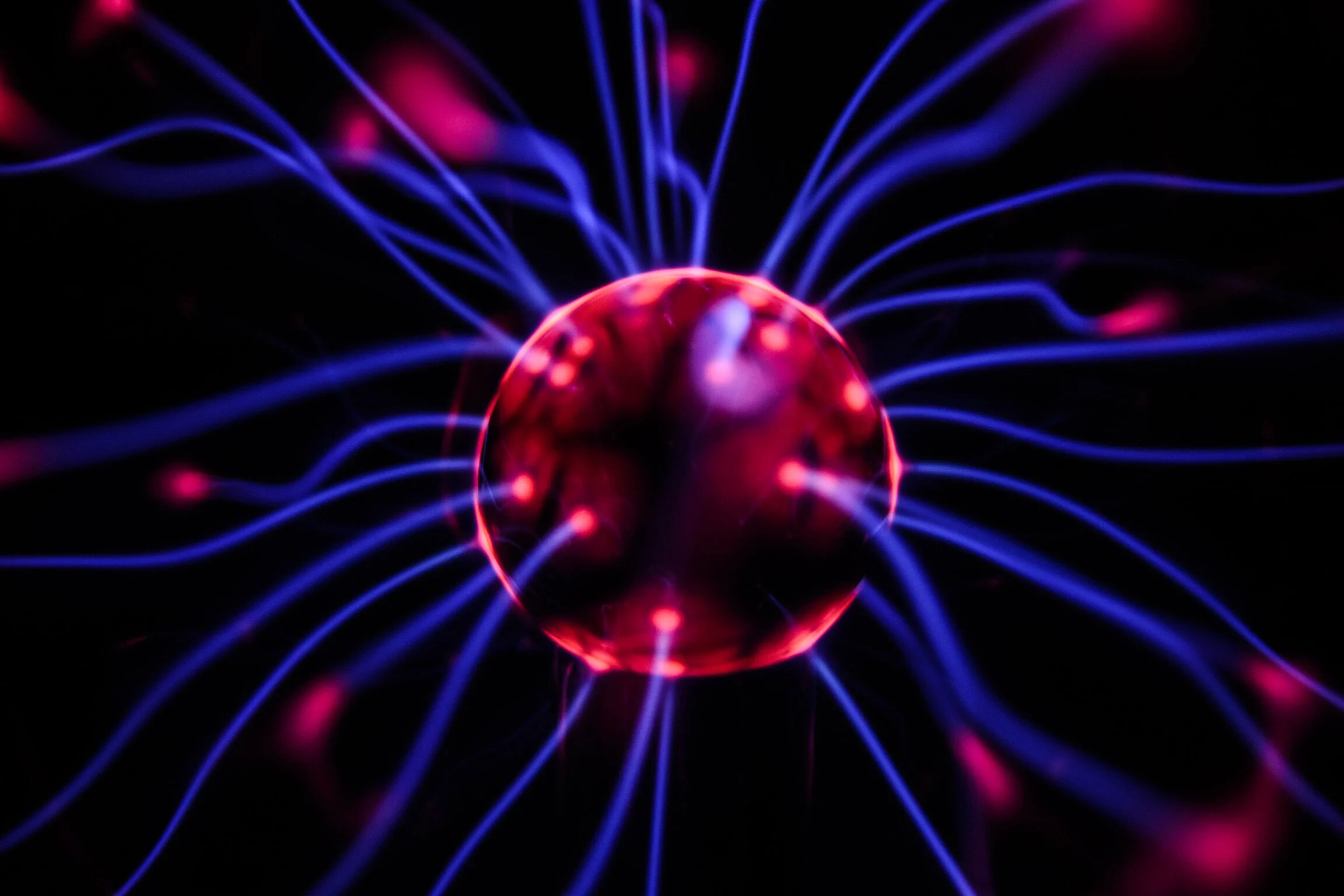Blog
First Four Steps for Successful OCD Treatment: ERP, CBT, and Beyond
Successful OCD treatment is in the hands of the client. Although finding the right clinic is critical, no matter how skilled the clinician is, the client is ultimately in the driver’s seat. Here are my top five steps to a successful beginning to your OCD treatment.
Ketamine Therapy and Anxiety Reduction: A Personal Journey
After six sessions of Ketamine, my process is, for now, complete. I see myself being less emotional, less reactive, and less compulsive in every realm of my life. I find that obsessions don’t circulate for more than a beat, and intrusive thoughts are far less common. The reduction in anxiety is palpable. If anxiety and OCD have robbed me of anything in my lifetime, it is this present-moment peace. Previously my brain would cycle back to anxiety like fuel. I feel like Ketamine has reset my brain to allow contentment to be the default.
What is Interoceptive Exposure? : Interrupting the Panic Feedback Loop
With phobias, anxiety, and OCD, individuals often develop a fear of symptoms that can become treatment interfering. If we dread our panic reactions, or the physical sensations anxiety in the body, we end up avoiding and shutting down exposures. With effort, stamina, and patience, interoceptive exposures can be a highly effective tool to break the cycle of anxiety avoidance.
DBT Skills for the Highly Sensitive Brain: How to Target Self-Destructive Physical Patterns
One strategy of DBT treatment is reducing your physical vulnerability to anxiety. The overwhelming emotions of anxious reactions can cause an individual to lash out (or go into a self-blame spiral). While we do not want to avoid anxiety, we also do not want to leave ourselves so vulnerable to huge emotions that we are constantly riding the waves of our reactivity.
Skin Picking Exposures: How to Target Body Based Repetitive Behaviors
Skin-picking is a close cousin of OCD, and falls into the category of Body Based Repetitive Behaviors. As with all physical compulsions, the key is to provoke the desire to pick and repeat the common situations where picking occurs, but then delay or resist the completion of the act.
Psychological Inflexibility and Anxiety: How Stubbornness Interferes in the Therapy Room
Psychological Inflexibility can lead us down many unhealthy paths. Cognitive rigidity makes us feel temporarily safe, but ultimately, can become the source of our anxiety.
Thankfully, the brain is highly pliable. Our neural pathways can be stretched. Cognitive flexibility is a prime goal of Acceptance and Commitment Therapy, and a common target if exposures and CBT have been rejected
The Showering Compulsion: How Showers and OCD connect
While many people find comfort in the cleansing experience of a shower, for those of us with OCD, it is a common area to be gripped with compulsions.
Anxiety and Chinese Traditional Medicine: Resetting the Nervous System Through Acupuncture
For those suffering from anxiety, therapeutic treatment may not be accessible until the central nervous system is ready. We recommend utilizing the wisdom of almost three thousand years of Chinese medical practice to support our clients’ mental health.
When Treatment is Stuck: Resistance in OCD Therapy
Most cases of OCD treatment ebb and flow with progress, but occasionally, we are met with significant resistance. Although we hope to externalize OCD as a separate voice from one’s true self, OCD often can be deeply entrenched in our personalities. Sometimes, we cannot imagine who we are without our OCD behaviors and we lean on this predictable mode of reacting to the world. The temporarily easier path is to stay in your OCD.
Why We Require Parents to Complete Exposure Response Prevention Training
As a holistic OCD clinic, we are constantly examining the ways in which we can provide more comprehensive services to heal both clients and their family systems. When we utilize the intervention of Exposure Response Prevention, we are leaning into a very different type of therapy. Rather than soothing our clients, we are purposefully moving towards their fears.
Setting an Intention to Unlock Anger with Ketamine: A First Person Narrative
“It’s my fault” is a form of compulsive mental self-harm. I needed to unlock externalized anger and re-channel that energy outward when the world merited it. I needed to feel into this anger, and release it.
Practical Strategies for Managing Holiday time Anxiety and OCD Flare-ups
This time of year we see a tremendous uptick in stress reactions among our clients. Many find that returning to their hometowns and families to celebrate the holidays can bring up a lot of unwanted compulsions, worry cycles, and interpersonal conflict. Anxiety and OCD are both cyclical disorders, which are prone to flare ups. Here are my top four strategies for managing this time of year if you or your loved one is dealing with an anxiety disorder.
How Group Therapy and Mindfulness can help with Child Anxiety
Kairos Wellness Collective now runs three robust groups for anxiety targeting middle school, high school, and college-aged young people. Unfortunately, even though many children freely share symptoms of anxiety with each other, others feel deep shame that their “fears” will be minimized or mocked by others. Creating a group environment for breathing, yoga, and mindfulness activities makes them achievable, normalized, and within reach for almost all kids.
The silenced inner critic: A Therapist's first-person account of a Ketamine Journey
This last journey also showed me that I continue to experience resistance to succumbing to the effects of the medicine – even at a higher dosage. I recognize that this is related to my OCD. I fear letting go, ceding control, and opening myself up to new sensations. Every time I do a Ketamine Assisted Psychotherapy session I get slightly more habituated to this experience – however, for me, as with many with OCD, overcoming a fear can be a slow road. Overall, regardless of any particular Ketamine experience, after four sessions, my overall wellbeing is notably improved. Most interestingly, my inner critic has been completely silenced. It is a strange experience to make mistakes and not hear my OCD voice chime in afterwards. I feel oddly removed from my faults and omissions – observant but emotionally unaffected.
How Mindfulness Therapy can Activate our Child's Parasympathetic Nervous System
One of the greatest mental health gifts we can give to the next generation is having the tools and skills to control the activation of their Sympathetic Nervous Systems. When we are brought into a space of healing with the parasympathetic system, we are open to the voices and perspectives in the therapy room. Our children become less dominated by the personal experience of the world, and more open to rewriting their narrative of the world.
Four Reasons why OCD can be aggravated by the Holidays
The disruption of routine and challenges of family gatherings, travel, and monetary pressures, can greatly intensify Obsessive Compulsive Disorder (OCD). OCD primarily presents as a need to find calm and control during uncertain circumstances. The more new variables at play - which abound during a holiday - the more likely it is that an individual will lean more heavily on unhealthy coping strategies.
Equanimous: What it means and how Ketamine can help us get there
Equanimous is most narrowly defined as being calm, collected, and able to integrate life’s ups and downs in an emotionally stable way. For those of us with ADHD, Anxiety, and OCD, our reactivity to triggers can lead to distress for ourselves and others. While we may desire to be equanimous as much as the next person, our natural state of interactivity with the world is simply the opposite. A ketamine experience, especially at a lower dose than may be administered for a psychedelic journey, can lead to a lasting steadiness of the mind. The ketamine experience and the following calm can reinforce the recipient’s equanimity.
What if the exposure is also triggering for the therapist?
As an OCD therapist, I would never ask my clients to do an exposure that I would not do myself. In fact, I often prove that this is not an empty promise and do the exposure alongside my client. ERP must be a collaboration.
Top Three Treatment Interfering Behaviors for OCD
As an OCD and Anxiety specialist, I am always assessing what could hold back my clients from getting better. If both therapist and client openly discuss these three common pitfalls to OCD treatment, we are likely to make a lot more progress. Like with all things, self-awareness, communication, and a good sense of humor help make these sticking points smoother.
When a Ketamine Experience feels meaningless
For those with anxiety, our prefrontal cortex can be a hamster wheel of thoughts, worries, hopes, goals, fears, and feelings. Even in a dreaming state, we are processing thoughts, emotions, and memories. With ketamine, such an overloaded brain can get the opportunity for a break. After this type of Ketamine trip, clients report that they feel more at ease, and like everything matters just a bit less. Emotions are less raw, and the heart is open.




















